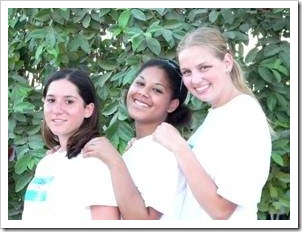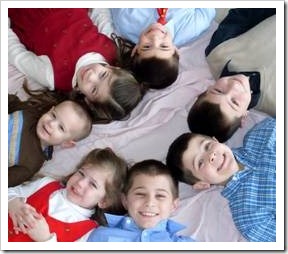
I learned it the hard way that connections get you places and that there is no need to fight it. I remember the first time I realized it when I was about 24 years old and went to the bank to get with a credit application. As Gal and I sat down in the manager’s office, he looked at us like we were two young kids and said, “Never! I don’t know you and I can’t give you any credit”.
People like doing business with people they know. There is an assumed trust with someone you know. My dad had suggested he come with us to the bank, but I said, “No! It’s not supposed to be like that”. We both had salaries, we owned our home (and had a huge loan my dad had organized) and I was convinced the bank manager would look at the facts and understand we were a reliable couple, but he did not.
At one stage, I asked the bank manager, “Do you know my dad?”
He asked, “What’s your dad’s name?”
When I told him, he cried, “Oh, you are Yehuda’s daughter! Why didn’t you say so? Sure, I’ll give you credit! Here, give me the form and I’ll sign it”
I was furious, but I realized my dad had built this connection for a long time and it was just wise for me to take advantage of it. I also realized I had to do the same for my children.
Much of our success in life depends on our ability to network and connect with other people. This is a very important skill that your kids will learn from you. It is almost a form of art.
In my leadership training, I tell the participants that good leaders have good networks and they build them like spiders. Every person they meet, they weave a web that connects them. This is true in life and in business. You connect with people and you both benefit from the relationship. Benefit does not have to be financial, it can be emotional, but as long as both sides benefit, the relationship will continue. This is a very important social skill to teach children – having a network of friends is important for their success and it based on “give and take”. In a good relationship, you cannot be a constant giver or a constant receiver.
How to teach your kids how to network
- It is very important for kids to understand that who they hang out with says a lot about who they are. There is a beautiful old saying, “Tell me who your friends are and I’ll tell you who you are“. Although it is not easy to accept, people will treat you the way you treat yourself. If you hang around kids that do not appreciate academic achievement, you will tend to adopt that mindset too. It is the same the other way – if you hang around kids who appreciate music, you will be more appreciative of music yourself.

- Kids with a big network meet others in different places. If your kids have many hobbies, they have a bigger chance to meet more kids of different kinds, network with them and sharpen their social skills. Give your kids opportunities to meet many other kids: camps, trips, music lessons, sporting activities, hobby classes, parties, sleepovers and other places where there are other kids.
- Teach your kids to introduce themselves when getting to a new place. They can practice in front of the mirror to say, “Hi, I’m Patrick”. This is sometimes enough to get to know people. Usually, with young kids, gathering the courage to approach someone and say, “Hi, my name is Liz”, is enough to start a wonderful relationship. When they are older, they can practice shaking hands and looking in the eye too. There are so many places where kids are dying to meet other kids and they do not have the courage to go and introduce themselves. Make sure your kids do not suffer from it.
- Teach your kids to memorize names. People like to know that you remembered their name. Teach them to ask, “What’s your name?” or “My name is Luke. What’s yours?” Repeating the name may help remember it and if they tell you about the new kids they meet, it may help even more. Teach them to use the other person’s name in conversation, but not to overdo it. I personally hate it when someone says to me, “Hi, Ronit. How are you, Ronit. Tell me, Ronit, would you like to…” Two key points are the beginning and the end of the conversation. Another opportunity to use someone’s name is to introduce them to someone else. Associating new names with images or rhyming words helps remember them.
- Knowing things about others is very helpful for building relationships. Kids can pay attention to birthday dates, notice when another kid says he is going overseas for the holidays and make note of appearance changes. When the time comes, they can say, “Happy birthday”, ask, “How was your holiday?” or compliments the new haircut. Showing interest is flattering for everyone, so show real interest in others. When my kids come home and tell me that one of their friends was sick, I always suggest calling them to how they are doing. I would want others to show interest in my kids too. It is also good for them to know personal things about their friends: where they live (with Mom or Dad), how many siblings they have, their hobbies and so on.
- Teach your kids to return a favor. If someone has been kind to them, help them look for ways to show kindness in return. Kindness is contagious and it will start a cycle of kindness that will never end. It will also make your kids popular.

- Teach your kids to be sensitive to other people’s problems and fears. They do not have to take those issues on themselves, but it is an opportunity for them to help. Our 10 year old daughter Noff came home one day and said her teacher was struggling with the whiteboard markers not being strong enough to see from the back of the classroom. She took some of the whiteboard markers we had at home and gave them to her teacher as a gift. Although teachers should buy good markers from their school budget, we thought that Noff was very sensitive and we were happy to encourage this sensitivity.
- Teach your kids to be appreciative of their relationships and never take for granted what others do for them. Saying “Please” and “Thank you” is an easy way to show appreciation. There is real social magic in these words.
The art of networking does not start when you are a grownup and have a business. It starts when you are 2 years old and you use your parents’ network to associate with other kids. How many times have you heard of people finding a job with the help of their network (the figure is 65%)? How many times have you heard of people finding a partner for life or for business within their network? The list of networking benefits is huge.
Relationships are something we build over years and the longer the relationship, the more trust and willingness to help exist between the friends or networking buddies. I am happy for my kids to use my network for as long as they can. Just recently, my son Tsoof went to audition for a community club award. In the interview, he told them about many of the charity events he had performed in the previous year. The first question they asked him was, “How did you get those gigs?” and he went over each of them in his mind and realized he had gotten all of them through our network or his own.
Unfortunately, our kids will not be with us forever. They will have to build their own networks and the sooner, the better. Make a conscious decision to teach them how to do it and be a role model as the first step.
Wishing you and your kids a huge network of friends,
Ronit













